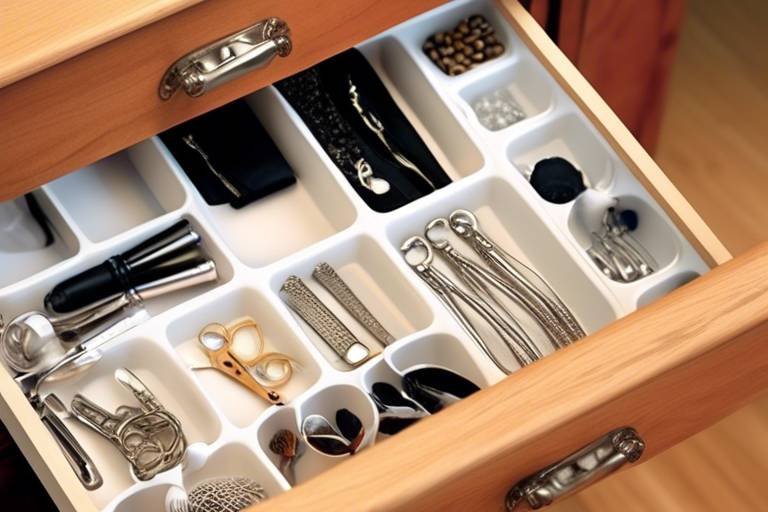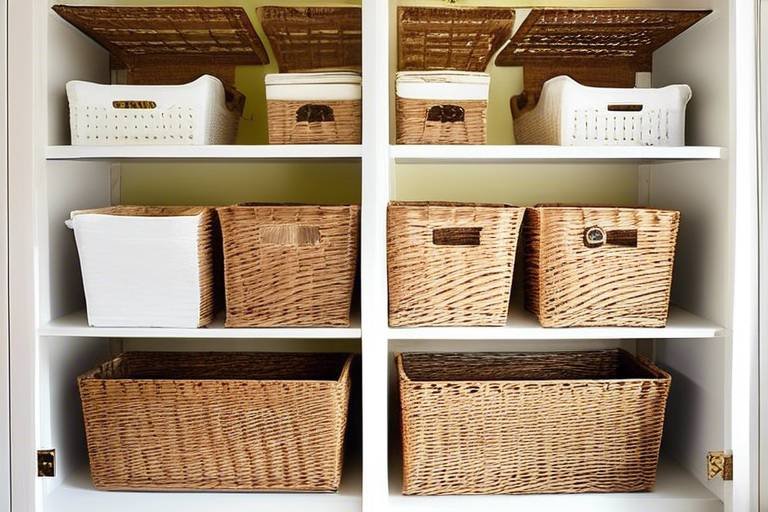How to Create a Weekly Cleaning Schedule for Your Home
Creating a weekly cleaning schedule for your home is a fantastic way to maintain a clean and organized living space without feeling overwhelmed by the tasks at hand. By following a structured routine, you can effectively manage your cleaning responsibilities while reducing stress and ensuring a healthy environment for you and your family.
When establishing your cleaning schedule, it's essential to first assess your cleaning needs. Consider the size of your home, the number of rooms, and the specific cleaning tasks required in each area. This evaluation will help you determine the time and effort needed for a thorough clean, allowing you to allocate your resources efficiently.
Setting realistic goals is key to maintaining a consistent cleaning routine. Take into account your schedule, lifestyle, and priorities when establishing cleaning goals. By creating achievable objectives, you can prevent feeling overwhelmed and stay motivated to keep up with your cleaning tasks.
Designating specific cleaning days for different tasks is a great way to create a structured cleaning routine. For example, you could schedule vacuuming on Mondays, laundry on Tuesdays, and bathroom cleaning on Wednesdays. This approach helps you stay organized and ensures that all areas of your home receive the attention they need.
Creating a detailed task list for each designated cleaning day is crucial for staying on track. Include daily chores like dishes and sweeping, weekly tasks like dusting and mopping, and monthly deep-cleaning duties. Having a clear outline of what needs to be done will help you tackle each task efficiently.
It's also beneficial to involve family members or housemates in the cleaning process by delegating specific responsibilities to each person. By promoting teamwork and shared responsibility, you can lighten the cleaning load and ensure that everyone contributes to maintaining a clean and tidy home.
Organizing your cleaning supplies in a designated area is essential for efficient cleaning sessions. Make sure you have all the necessary supplies and tools easily accessible to tackle each task effectively. Having everything in order will save you time and make the cleaning process smoother.
To stay motivated and committed to your cleaning schedule, consider establishing rewards and incentives for completing tasks. Whether it's enjoying a treat or relaxing in a clean, clutter-free space after a productive cleaning session, having incentives in place can make the cleaning process more enjoyable.
Regularly reviewing and adjusting your cleaning schedule is crucial for its effectiveness. Periodically assess your routine, make necessary adjustments based on changing circumstances or priorities, and ensure that it continues to meet your cleaning needs. Flexibility is key to maintaining a successful cleaning schedule.

Assess Your Cleaning Needs
Tips and tricks for establishing an effective weekly cleaning routine that keeps your home organized and tidy, reducing stress and maintaining a healthy living environment.
Evaluating your cleaning needs is the crucial first step in creating a successful cleaning schedule for your home. Consider the size of your living space, the number of rooms, and the specific cleaning tasks required in each area. By understanding the scope of your cleaning requirements, you can better estimate the time and effort needed for a thorough clean.
Think about the areas in your home that require regular attention, such as high-traffic zones that accumulate dust quickly or rooms that tend to get cluttered easily. Assessing your cleaning needs allows you to prioritize tasks and allocate time efficiently, ensuring that no corner of your home is overlooked.
Moreover, take into account any specific cleaning challenges or preferences you may have. For example, if you have pets, you might need to schedule more frequent vacuuming sessions or use specialized cleaning products. By tailoring your cleaning schedule to suit your unique needs, you can create a routine that works best for you and your home.
Remember, the goal of assessing your cleaning needs is to lay a solid foundation for a cleaning schedule that is both practical and effective. By understanding what areas require attention and how often they need to be cleaned, you can set yourself up for success in maintaining a clean and organized living environment.
Have questions about creating a weekly cleaning schedule for your home? Check out these commonly asked questions for more insights:
- Q: How often should I deep clean my home?
- Q: How can I involve my family in the cleaning process?
- Q: What are essential cleaning supplies to have on hand?
A: Deep cleaning your home should be done at least once a month to tackle areas that are often overlooked in regular cleaning routines.
A: Assign specific cleaning tasks to each family member based on their abilities and preferences to promote teamwork and shared responsibility.
A: Basic cleaning supplies include a multipurpose cleaner, microfiber cloths, a vacuum cleaner, a mop, and gloves for protection.
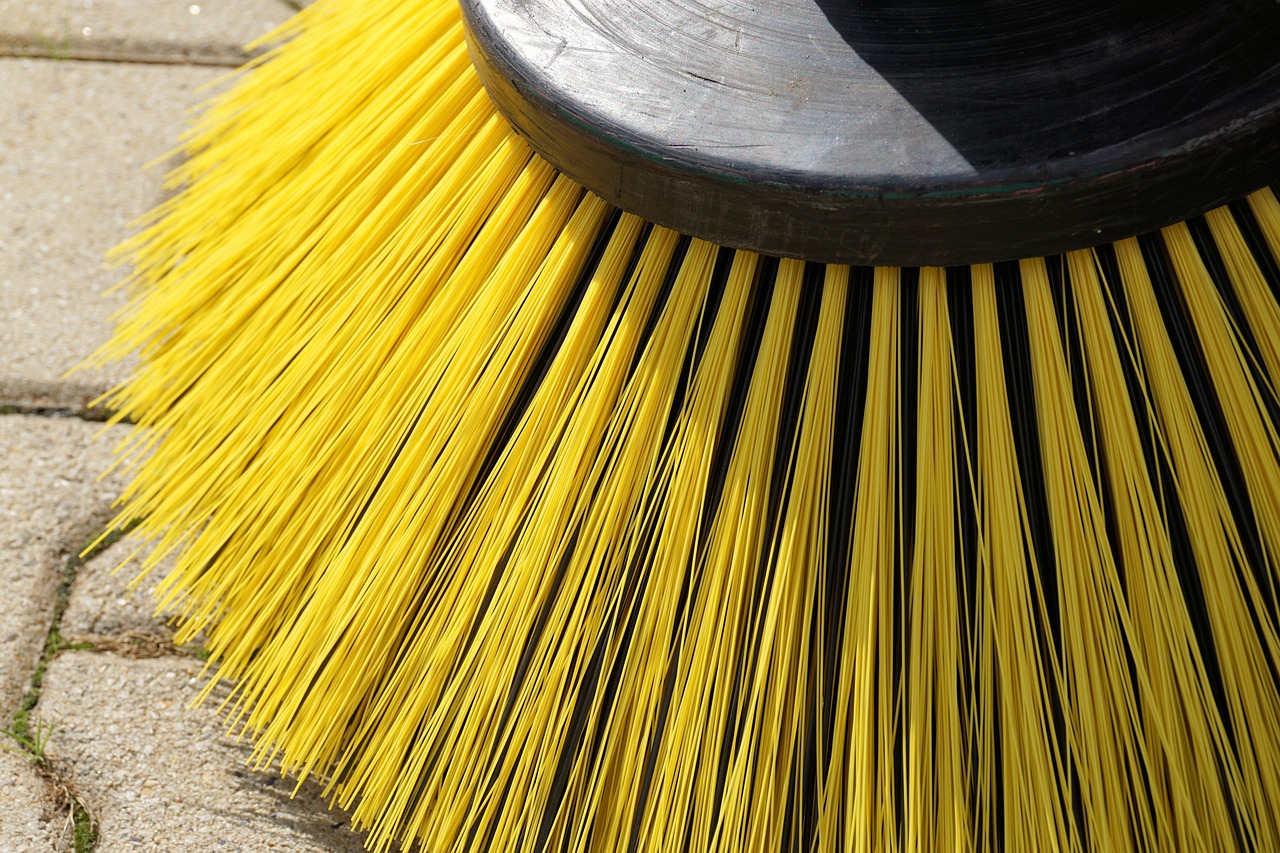
Set Realistic Goals
When it comes to creating a weekly cleaning schedule for your home, one of the crucial steps is setting realistic goals. It's essential to assess your own capabilities and limitations realistically to avoid feeling overwhelmed and maintain consistency in your cleaning routine. By establishing achievable cleaning goals that align with your schedule, lifestyle, and priorities, you can ensure that your cleaning routine is sustainable in the long run.
Consider your daily commitments, work schedule, and personal preferences when setting cleaning goals. Are you a busy professional with limited time during the week? Or perhaps a stay-at-home parent juggling multiple responsibilities? Tailoring your cleaning goals to fit your lifestyle will help you stay on track and prevent burnout from trying to do too much at once.
Setting realistic goals also involves breaking down larger cleaning tasks into smaller, manageable steps. Instead of aiming to deep clean your entire house in one day, consider spreading out tasks throughout the week. This approach not only makes the cleaning process less daunting but also ensures that each area of your home receives the attention it needs.
Moreover, be flexible with your goals and willing to adjust them as needed. Life can be unpredictable, and unexpected events or changes in your schedule may impact your cleaning routine. By staying adaptable and open to modifications, you can maintain a realistic and sustainable cleaning schedule that fits your current circumstances.
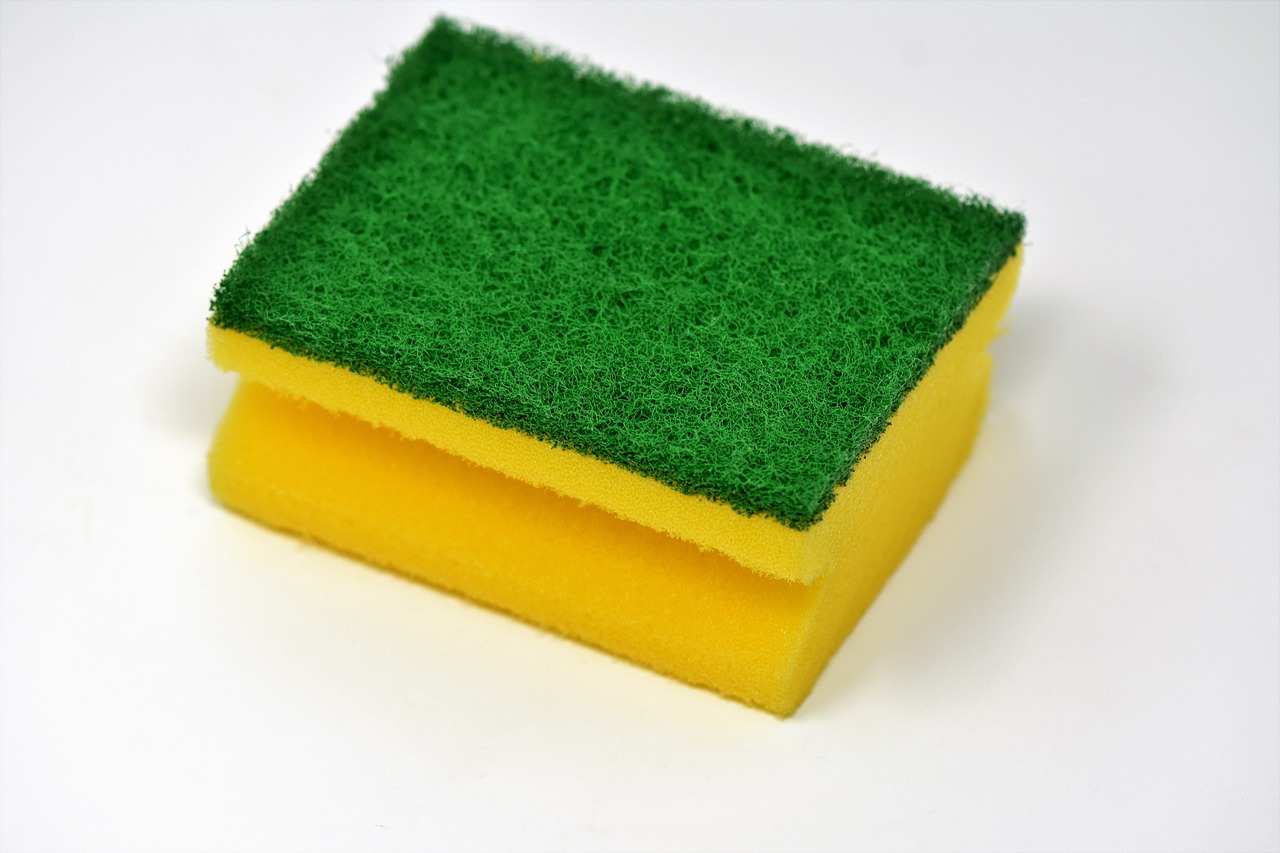
Designate Specific Cleaning Days
When it comes to maintaining a clean and organized home, designating specific cleaning days can be a game-changer. By allocating certain tasks to particular days of the week, you can establish a structured routine that ensures all areas of your home receive the attention they need.
Imagine each day of the week as a puzzle piece that fits perfectly into the overall picture of a clean and tidy home. Just like how Mondays are for fresh starts, you can designate Mondays for tasks like vacuuming to kick off the week with a clean slate. This sets the tone for the rest of the days ahead, creating a sense of order and accomplishment.
By assigning specific cleaning tasks to each day, you avoid the overwhelming feeling of trying to tackle everything at once. For example, dedicating Tuesdays to laundry allows you to focus solely on washing, folding, and organizing clothes without feeling rushed or stressed. This division of labor not only makes the workload more manageable but also ensures that no area of your home is neglected.
Think of your cleaning schedule as a well-orchestrated symphony, with each day representing a different note that harmonizes to create a beautiful melody of cleanliness. Just as a conductor directs each instrument to play at the right time, you can orchestrate your cleaning days to ensure that every task is completed efficiently and effectively.
Furthermore, designating specific cleaning days fosters a sense of predictability and routine in your household. Family members or housemates can anticipate which tasks need to be done on which days, making it easier to coordinate and collaborate on maintaining a clean living environment. This shared responsibility promotes teamwork and ensures that everyone contributes to the overall cleanliness of the home.
In essence, by designating specific cleaning days, you transform the daunting task of cleaning into a manageable and organized routine. Just as each day of the week brings its own unique opportunities and challenges, each designated cleaning day offers a chance to focus on specific tasks and areas of your home, ultimately leading to a cleaner, more organized living space.
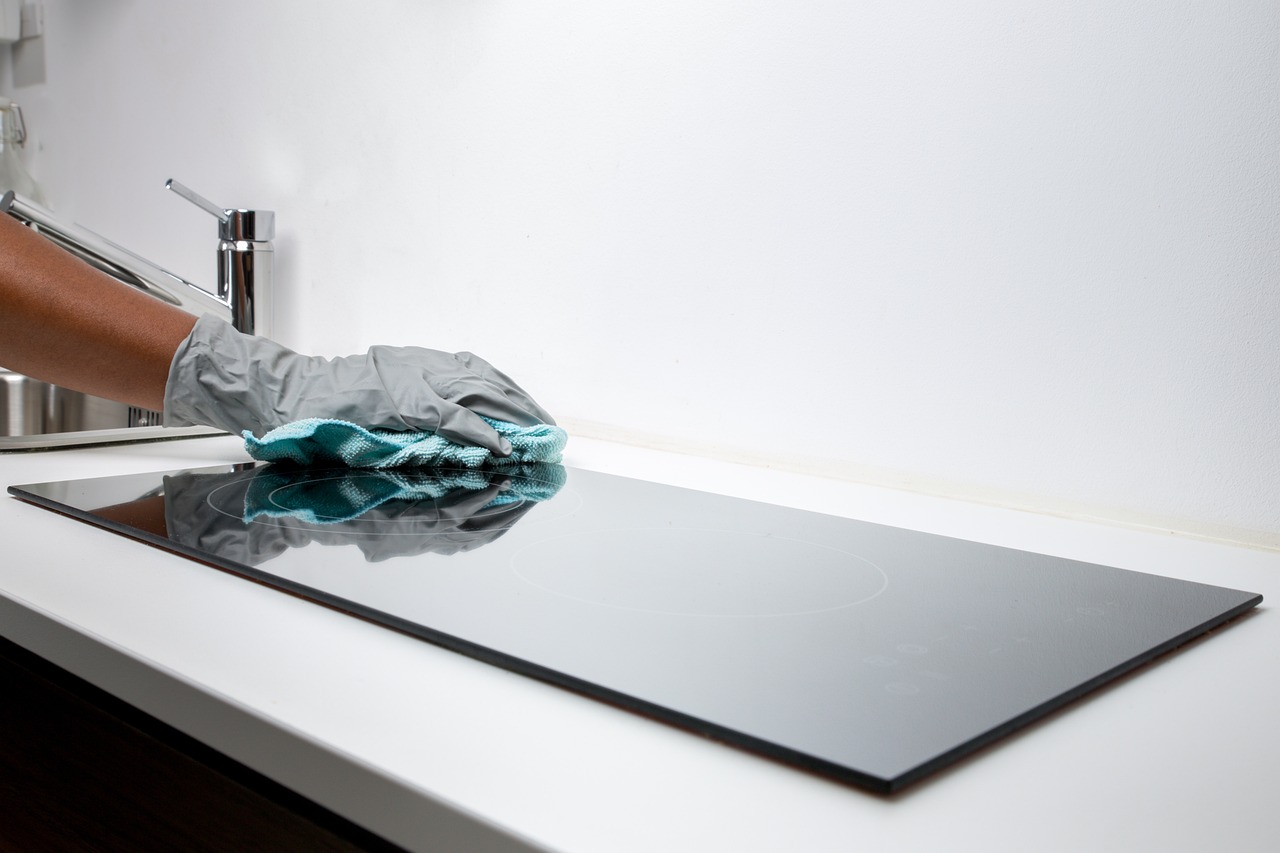
Create a Task List
When it comes to creating a task list for your weekly cleaning schedule, organization is key. Start by breaking down your cleaning tasks into manageable categories based on frequency and intensity. Consider dividing them into daily, weekly, and monthly tasks to ensure that all areas of your home receive the attention they need.
For daily tasks, focus on activities that help maintain a clean and tidy living space on a regular basis. This may include making the bed, doing the dishes, wiping down countertops, and quick vacuuming or sweeping of high-traffic areas. These tasks are essential for keeping your home looking presentable throughout the week.
When it comes to weekly tasks, think about chores that require a bit more time and effort but don't need to be done every day. Dusting all surfaces, mopping floors, cleaning bathrooms, and changing bed linens are typical weekly tasks that can help keep your home fresh and hygienic.
Lastly, don't forget about monthly deep-cleaning duties that target areas that may not need frequent attention but are important for maintaining a healthy living environment. This could involve tasks like cleaning out the refrigerator, washing windows, decluttering closets, and deep-cleaning carpets or upholstery.
Consider creating a visual task list or cleaning schedule that outlines each task by day and frequency. This can help you stay organized and motivated to tackle each chore efficiently. By breaking down your cleaning tasks into a structured list, you can ensure that nothing gets overlooked and that your home remains clean and inviting week after week.

Delegate Responsibilities
When it comes to maintaining a clean and organized home, delegating responsibilities can be a game-changer. By involving family members or housemates in the cleaning process, you not only lighten your own load but also promote teamwork and shared responsibility for the cleanliness of your living space. Assigning specific tasks to each person ensures that everyone contributes to the upkeep of the home, fostering a sense of accountability and cooperation.
Imagine the cleaning process as a team sport where each player has a crucial role to play. Just like a well-coordinated team on the field, when everyone pitches in and fulfills their responsibilities, the end result is a smoothly running household with a sparkling clean environment. By delegating tasks, you not only distribute the workload but also create a sense of unity and collaboration among household members.
Communication is key when it comes to delegating responsibilities effectively. Clearly defining each person's tasks, setting expectations, and establishing a system for accountability can help streamline the cleaning process and prevent misunderstandings. Encourage open dialogue and feedback to ensure that everyone is on the same page and working towards a common goal of maintaining a clean and comfortable home.
Delegate responsibilities based on individual strengths and preferences to maximize efficiency and ensure that each task is completed to the highest standard. Someone who enjoys organizing can be in charge of decluttering common areas, while a family member with a knack for detail can focus on tasks like dusting or cleaning windows. By leveraging each person's skills and interests, you create a balanced cleaning team that works together harmoniously.

Organize Cleaning Supplies
When it comes to maintaining a clean and organized home, having your cleaning supplies in order is essential. Imagine trying to clean up a spill quickly, only to realize you can't find the right cleaner or cloth amidst the chaos of cluttered supplies – it's like trying to navigate a maze blindfolded!
To avoid such scenarios and streamline your cleaning process, it's crucial to organize your cleaning supplies effectively. Think of it as setting up your arsenal for battle – you want everything in its rightful place, easily accessible when the cleaning war commences.
One way to achieve this is by creating a designated cleaning supplies area. This could be a cabinet, shelf, or even a cleaning caddy, depending on the size of your home and the amount of supplies you have. Having a dedicated space ensures that all your cleaning tools and products are neatly arranged and easily reachable whenever you need them.
Consider categorizing your supplies based on their usage or type. For example, you could have a section for surface cleaners, another for mopping tools, and a separate one for sponges and scrub brushes. This organization system not only saves you time searching for specific items but also helps you keep track of when supplies are running low and need restocking.
Utilizing storage solutions such as bins, baskets, or drawer dividers can further enhance the efficiency of your cleaning supplies setup. Imagine opening a drawer and finding everything neatly compartmentalized – it's like having a well-organized toolbox for your cleaning endeavors.
Labeling containers or shelves can also be a game-changer in your cleaning supply organization. Knowing exactly where each item belongs not only speeds up the cleaning process but also ensures that everything is returned to its proper place after use, maintaining the overall orderliness of your cleaning station.
Lastly, don't forget to periodically review and declutter your cleaning supplies. Dispose of expired or unused products, and assess if there are any new items you may need to add to your arsenal. Keeping your supplies streamlined and up to date will not only save you space but also prevent you from feeling overwhelmed by a surplus of unnecessary products.

Establish Rewards and Incentives
Establishing rewards and incentives can be a fun and effective way to stay motivated and committed to your weekly cleaning schedule. Just like a child eagerly awaits a treat for completing their homework, adults can also benefit from positive reinforcement when it comes to household chores. By incorporating rewards into your cleaning routine, you can turn a mundane task into a more enjoyable experience.
One way to establish rewards is to set specific goals for each cleaning session. For example, if you successfully complete all the tasks on your list for the day, treat yourself to something you enjoy, like a piece of chocolate or a cup of tea. This small indulgence can serve as a powerful incentive to stay on track and finish your cleaning efficiently.
Another idea is to create a reward system based on consistency. For instance, if you manage to stick to your cleaning schedule for an entire month without missing a day, plan a special outing or activity to celebrate your dedication. This long-term incentive can help you stay focused and committed to maintaining a clean and organized home.
Moreover, involving your family or housemates in the reward system can make cleaning more engaging and collaborative. Consider setting up a reward jar where everyone contributes a small amount each time they complete their assigned cleaning tasks. Once the jar is full, use the collected money to enjoy a family outing or a meal together, reinforcing the idea that cleaning is a shared responsibility and a team effort.
Remember, the key to a successful rewards system is to make it personal and meaningful to you. Whether it's treating yourself to a movie night, a spa day, or simply some quiet time to relax in a clean environment, find incentives that resonate with your preferences and lifestyle. By combining positive reinforcement with your cleaning routine, you can transform a chore into a rewarding and satisfying experience.
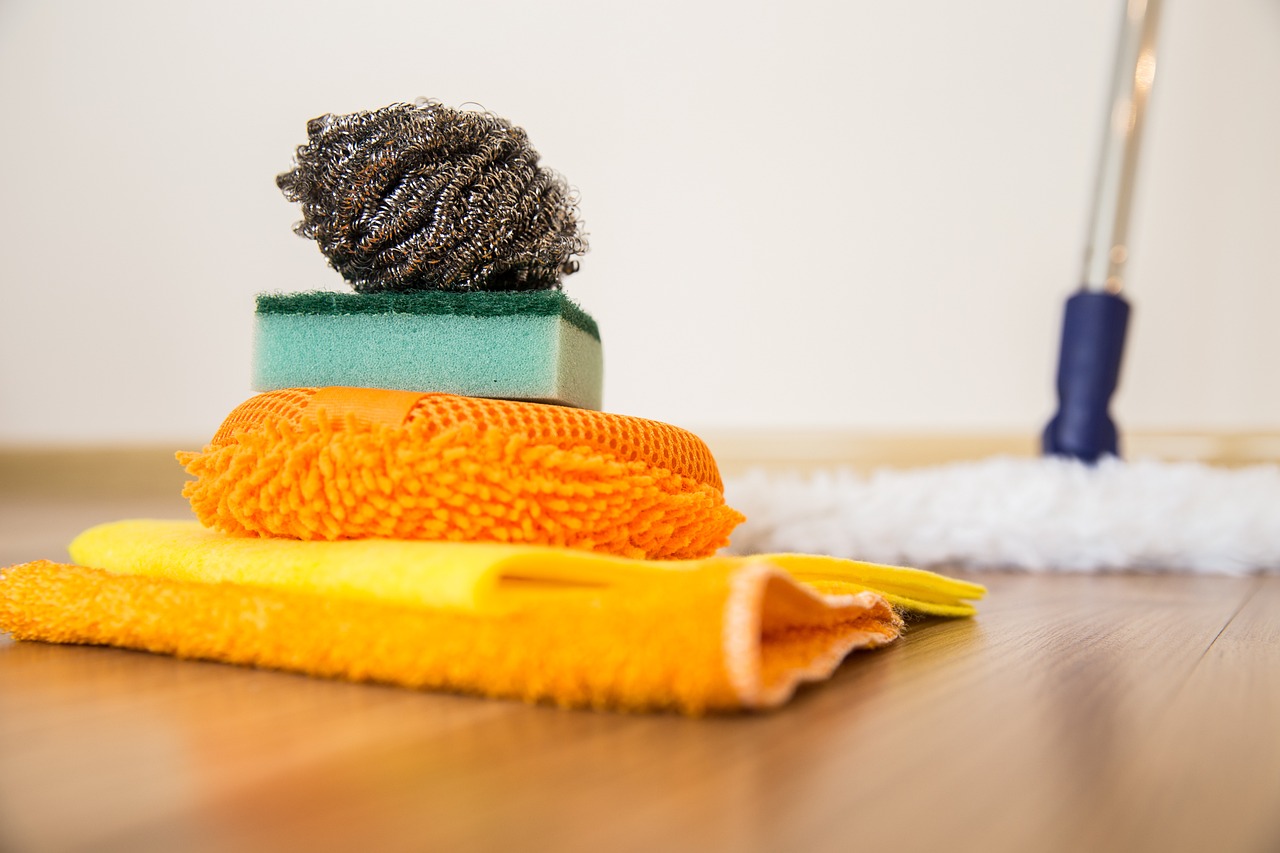
Review and Adjust Regularly
Regularly reviewing and adjusting your cleaning schedule is essential to ensure its effectiveness and relevance to your evolving needs. Just as a gardener tends to their garden, you must cultivate and nurture your cleaning routine to maintain a harmonious living space. Think of it as a living organism that requires care and attention to thrive.
When reviewing your schedule, consider factors such as changes in your daily routine, upcoming events that may impact your cleaning time, or new priorities that require shifting your focus. Flexibility is key to adapting your schedule to align with your current circumstances without feeling constrained by rigid rules.
One effective way to assess the efficiency of your cleaning routine is to keep a cleaning journal or log where you can track your progress, note any challenges or areas of improvement, and reflect on what has worked well for you. This reflective practice can help you identify patterns and trends in your cleaning habits, allowing you to make informed adjustments.
Additionally, seek feedback from family members or housemates involved in the cleaning process. Encourage open communication about what is working effectively and what may need tweaking. Remember, cleaning is a collaborative effort, and sharing insights can lead to a more streamlined and coordinated approach to household chores.
As you review and adjust your cleaning schedule, don't be afraid to experiment with new strategies or techniques. Embrace innovation and creativity in finding solutions to common cleaning challenges. Perhaps there's a more efficient way to tackle a particular task or a new cleaning product that can simplify your routine.
Ultimately, the goal of regular review and adjustment is to create a cleaning schedule that is tailored to your unique needs and preferences. By staying proactive and attentive to changes in your environment, you can maintain a clean and inviting home that supports your well-being and enhances your quality of life.
Frequently Asked Questions
- How often should I clean my home?
Cleaning frequency depends on various factors such as the size of your home, the number of occupants, and personal preferences. Generally, a weekly cleaning schedule is recommended to maintain a tidy and organized living space.
- What are essential cleaning supplies to have on hand?
Key cleaning supplies include multi-surface cleaners, microfiber cloths, a vacuum cleaner, a mop, and trash bags. It's also beneficial to have specialized products for specific tasks like glass cleaners or wood polish.
- How can I motivate myself to stick to a cleaning routine?
Setting small, achievable goals, rewarding yourself for completing tasks, and creating a pleasant cleaning environment can help boost motivation. Additionally, involving family members or roommates in the cleaning process can make it more enjoyable and efficient.




